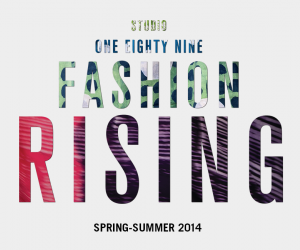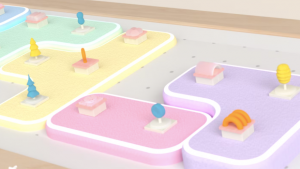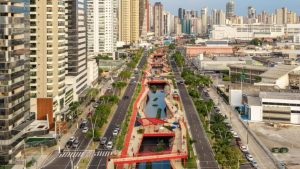New York architecture and spatial design studio noCOLOUR have tapped into the craft expertise of the waterborn Nzulezu community in western Ghana for the design of a portable street vendor’s kiosk. The Nzulezu villagers live in raffia houses on stilts above Lake Tadane. Raw raffia is used in the exteriors of the building and dried raffia fibres for the rooftops, making a lightweight but durable structure.
“The raffia used in the development of the mobile kiosks is sourced from this region,” says the founder of noCOLOUR, Douglas Moreno. “These informal markets and street-sellers form the largest economy. The local people have been working with this material since time immemorial, so we learned a lot from the knowledge they’ve been employing for generations.”
The vendors on the streets of Ghana’s cities make up a large part of the urban economy. However, police raids on the informal markets often result in the destruction of the vendors’ stalls. The New York based designers believe they have found an alternative market stall structure that can be easily folded away to fit in a trunk, thereby saving it from damage during the raids.
“We have long been fascinated by the incredible vitality of streetside markets in Ghana,” say noCOLOUR. “These informal markets and street-sellers form the largest economy here. They function as the centres of commerce and the source of the majority of people’s livelihoods. They’re so colorful, so full of energy and life.”
But on a visit to Accra in 2013 Moreno witnessed the devastation of whole streets of the sellers’ stalls by local metropolitan authorities, who often come through and decommission the streetside markets.
“It’s so tragic to see these places of business destroyed,” he says. “People are left with debt and having to start from scratch.”
The designers at noCOLOUR had been brainstorming to try to find a solution since Moreno first saw the destruction, but with no great success.
It was a different job that led them to chance upon the idea of how to solve the Ghanaian market vendors’ problem.
Studio 189, a social enerprise founded by fellow New Yorkers Rosario Dawson and Abrima Erwiah, commissioned noCOLOUR to design a travel-friendly pavillion for its Fashion Rising campaign, which employs Ghanaian women to manufacture its clothing and handmade accessories. The brief was to create a fold-away two square metre stand that fitted neatly into suitcases, met airline regulations and could be assembled for use at design fairs around the world.
Moreno saw the possibilty of using this pop-up pavillion as a market stall. They merely had to make the Studio 189 version lighter, weatherproof and more durable. New material for the stalls needed to be sourced locally, to allow for easy repair and replacement of sections. The lightweight stalls also needed to be easy to move around, allowing the vendors to set up wherever there is a crowd.
“Sellers would not only avoid demolitions, but also maximise their ability to source daily revenue,” say noCOLOUR.
The noCOLOUR kiosk is only a fraction of the weight of current market kiosks and is considerably cheaper for a vendor to buy, making it a viable option.
The raffia goes through a saline bath to protect it from insects, and is treated with a watertight sealant and a clear varnish, after which it can easily last for 10 years.
The kiosks are still in a prototype phase, but the noCOLOUR studio is hoping to role them out in Ghana in the coming months.
“Informal markets are really centres of civic life. And despite their apparent chaos, they are remarkably well organised. They are also a very important pathway to economic empowerment for women, because markets in Ghana are traditionally women’s spaces. In modern times, of course, there are many men in the markets as well. Many young people find work there, which is critical in an economy where formal employment is still rare,” says Moreno.
The noCOLOUR studio is based in New York, but calls itself a “mobile office”, relocating to tackle projects that spring up in the different corners of the globe. It has had satellite offices in Bogota, Colombia and in the Carribbean. Moreno has a multicultural heritage: he is first-generation American, with family from Colombia. He says his background brings a cultural awareness to their work.
During that initial trip to Accra, Moreno met a local Ghanaian architect called Pallavi Kumer, who introduced him to the local culture and who is working on the development and implementation of the kiosks.
“Africa has such a diverse and unique history that is hardly known outside the continent. Culturally it has so much to teach the world. There’s a palpable sense of interconnectedness that we find very compelling. And there is so much innovation there. There are amazing opportunities in a fast-developing country like Ghana and in every country in Africa, opportunities that will allow for the people to develop further and benefit all.”













